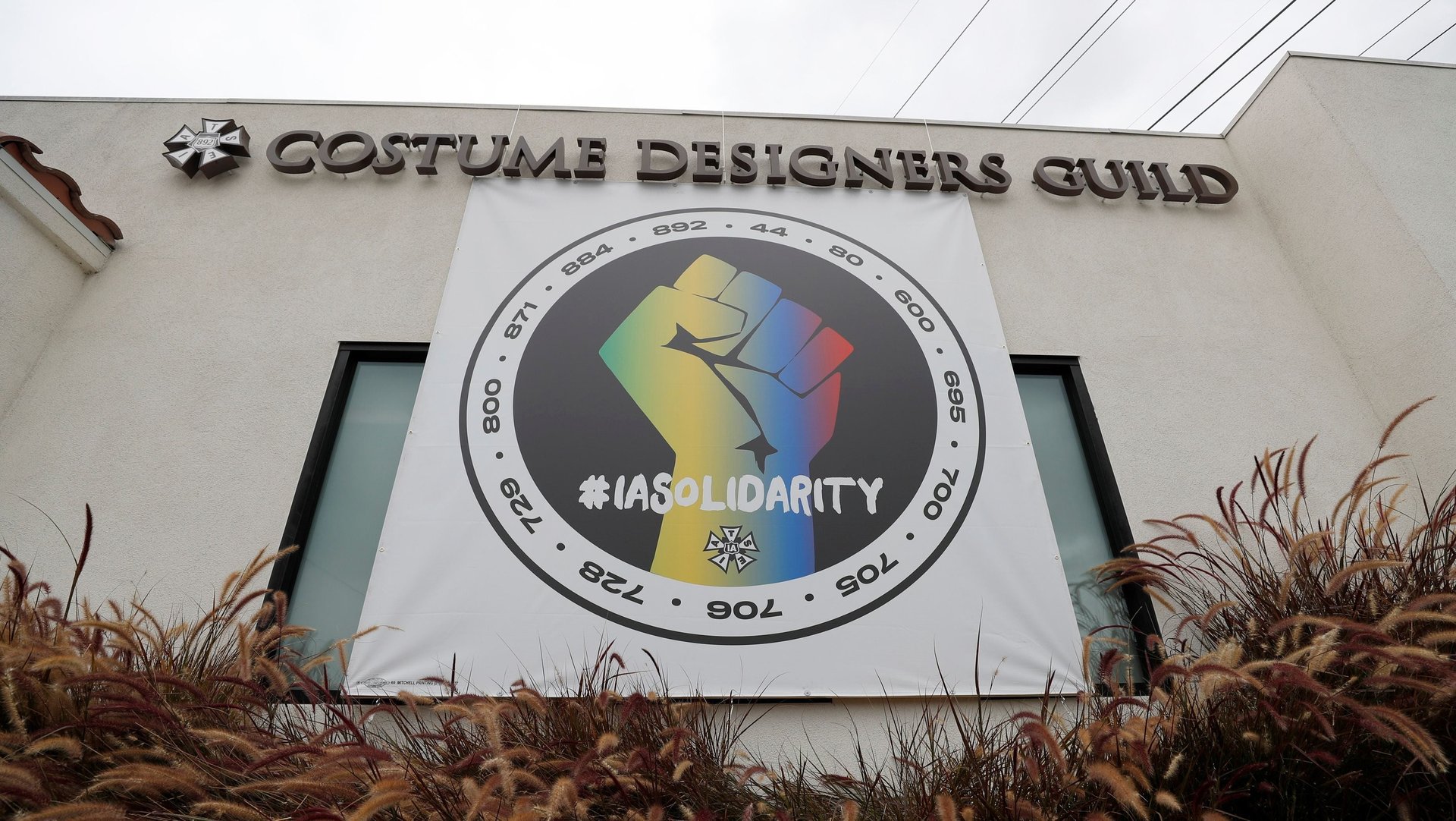A looming strike could cost Hollywood more than the pandemic lockdowns
Hollywood film and television studios are facing a strike by the International Alliance of Theatrical Stage Employees (IATSE), which could bring a halt to a wide array of theatrical and streaming productions.


Hollywood film and television studios are facing a strike by the International Alliance of Theatrical Stage Employees (IATSE), which could bring a halt to a wide array of theatrical and streaming productions.
“Unless an agreement is reached, 60,000 IATSE film and TV workers will begin a nationwide strike against the AMPTP,” Matthew D. Loeb, the president of the IATSE, said Oct. 13 via Twitter, referring to the Alliance of Motion Picture and Television Producers.
The union represents the workforce of Hollywood that operates behind the cameras, including hair and makeup artists, wardrobe attendants, cinematographers, editors, and art directors. IATSE’s latest contract, signed back in 2018, expired in July. As a stopgap, while negotiations proceeded, the IATSE and AMPTP agreed to extend the contract until Sept. 10 in hopes that an agreement could be reached.
But now that October is in full swing, with still no deal in sight, the IATSE has decided to exercise the strongest lever available to unionized workforces—a strike.
What happens to productions that are filming if there’s a strike?
A massive worker strike would be an additional hurdle for Hollywood after a year of adjusting to the disruptions brought about by the pandemic. If a shutdown does occur, it could upend some of the most anticipated film and streaming shows that were already delayed. This summer, Mission: Impossible 7, season 2 of Bridgerton, and Game of Thrones spinoff House of the Dragon were all forced to halt filming due to positive covid-19 tests.
Established streamers like Netflix and Hulu would have their relatively fresh back catalogs to lean on. And services tied to legacy TV networks like Paramount Plus (formerly CBS All Access) could rely on its traditional reserves of TV content to serve viewers. But newer services like Apple TV+ (which just renewed the sci-fi epic Foundation for a second season) could be damaged by an extended production slowdown, just as the company is making plans to build a new studio lot in Los Angeles to support its Hollywood studio ambitions.
But the biggest shift brought about by the strike could be theatrical releases. Last year was marred by a long list of films postponed as studios attempted to ride out the pandemic storm in hopes of eventually launching in theaters, with some ultimately relenting and opting for a dual theater/streaming approach. If a strike shuts down films currently in production, such as Guardians of the Galaxy Vol. 3, Blade, The Exorcist, Fantastic Four, and many others, it might hasten the slow death of the traditional movie house.
The entertainment industry could lose “$160 billion of growth,” due to the pandemic, with the theatrical movie release sector accounting for $24.4 billion in potential losses over the next five years, according to an estimated from research firm Ampere Analysis.
Despite the Motion Picture Association’s report of a 23% increase ($68.8 billion) in streaming video revenue in 2020 compared to 2019, and global video streaming subscriptions hitting a high of 1.1 billion for the first time, Hollywood is still wrestling with the new pandemic-influenced entertainment landscape. The IATSE’s demands are just the latest challenge amid a flurry of many new ones.
What are the issues Hollywood workers might strike over?
One of the stickiest issues currently on the table is how to account for streaming revenue, which has seen a dramatic uptick in the past year and a half due to pandemic lockdowns. In the wake of streaming’s new dominance, IATSE members argue that studio’s haven’t kept promises they made years ago to renegotiate better payment terms, before streaming went fully mainstream.
This aspect of the union’s fight mirrors the recent legal skirmish between actor Scarlett Johansson and Disney related to the profits stemming from the Marvel movie Black Widow. Johansson and Disney have since settled the lawsuit but this new union battle is another indication that Hollywood is still grappling with how the spoils of this new streaming era should be divvied out. In a show of solidarity over the issue, a number of IATSE members claimed to have canceled their streaming subscriptions.
The IATSE is also demanding longer break periods between productions, and improved healthcare benefits and pensions.
So far, supporters of the IATSE include actors such as Seth Rogen, Jeffrey Wright, Rosie O’Donnell, Mindy Kaling, Alyssa Milano, Sarah Paulson, Fran Drescher, producer Ava DuVernay, and others, many using the #IASolidarity hashtag. Along with the support of the on-camera talent, the IATSE also got a boost from Washington in the form of a letter, signed by 120 members of the House and Senate.
Neither the IATSE nor the AMPTP have responded to a request for comment on the ongoing negotiations. Nevertheless, as a countdown ticker on the IATSE website indicates, time is running out for Hollywood’s largest studios to avoid a strike. Currently, if the two groups fail to reach an agreement, the strike is set to launch midnight Oct. 18.
“The current pace of bargaining doesn’t reflect any sense of urgency,” Loeb said. “Without an end date, we could keep talking forever.”